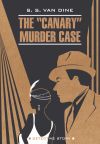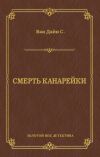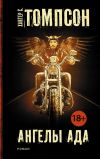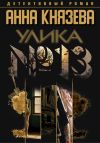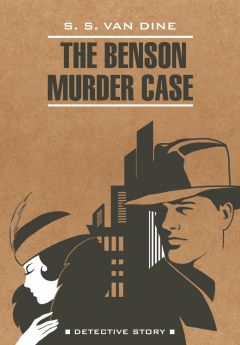
Автор книги: Стивен Ван Дайн
Жанр: Иностранные языки, Наука и Образование
Возрастные ограничения: +16
сообщить о неприемлемом содержимом
Текущая страница: 5 (всего у книги 18 страниц) [доступный отрывок для чтения: 5 страниц]
Chapter VI. Vance Offers an Opinion
(Saturday, June 15; 2 p.m.)
We sat for a while smoking in silence, Vance gazing lazily out into Madison Square, Markham frowning deeply at the faded oil portrait of old Peter Stuyvesant that hung over the fireplace.
Presently Vance turned and contemplated the District Attorney with a faintly sardonic smile.
“I say, Markham,” he drawled; “it has always been a source of amazement to me how easily you investigators of crime are misled by what you call clues. You find a footprint, or a parked automobile, or a monogrammed handkerchief, and then dash off on a wild chase with your eternal Ecce signum![46]46
ecce signum (лат.) – досл. вот знак; зд. смотри на доказательства
[Закрыть] ’Pon my word, it’s as if you chaps were all under the spell of shillin’ shockers. Won’t you ever learn that crimes can’t be solved by deductions based merely on material clues and circumst’ntial evidence?”
I think Markham was as much surprised as I at this sudden criticism; yet we both knew Vance well enough to realize that, despite his placid and almost flippant tone, there was a serious purpose behind his words.
“Would you advocate ignoring all the tangible evidence of a crime?” asked Markham, a bit patronizingly.
“Most emphatically,” Vance declared calmly. “It’s not only worthless but dangerous. … The great trouble with you chaps, d’ ye see, is that you approach every crime with a fixed and unshakable assumption that the criminal is either half-witted or a colossal bungler. I say, has it never by any chance occurred to you that if a detective could see a clue, the criminal would also have seen it, and would either have concealed it or disguised it, if he had not wanted it found? And have you never paused to consider that anyone clever enough to plan and execute a successful crime these days, is, ipso facto[47]47
ipso facto (лат.) —в силу очевидного факта
[Закрыть], clever enough to manufacture whatever clues suit his purpose? Your detective seems wholly unwilling to admit that the surface appearance of a crime may be delib’rately deceptive, or that the clues may have been planted for the def’nite purpose of misleading him.”
“I’m afraid,” Markham pointed out, with an air of indulgent irony, “that we’d convict very few criminals if we were to ignore all indicatory evidence, cogent circumstances and irresistible inferences. … As a rule, you know, crimes are not witnessed by outsiders.”
“That’s your fundamental error, don’t y’ know,” Vance observed impassively. “Every crime is witnessed by outsiders, just as is every work of art. The fact that no one sees the criminal, or the artist, actu’lly at work, is wholly incons’quential. The modern investigator of crime would doubtless refuse to believe that Rubens painted the Descent from the Cross[48]48
Descent from the Cross – «Снятие с креста», центральная панель триптиха фламандского художника Питера Пауля Рубенса, 1610–1614.
[Закрыть] in the Cathedral at Antwerp if there was sufficient circumst’ntial evidence to indicate that he had been away on diplomatic business, for instance, at the time it was painted. And yet, my dear fellow, such a conclusion would be prepost’rous. Even if the inf’rences to the contr’ry were so irresistible as to be legally overpowering, the picture itself would prove conclusively that Rubens did paint it. Why? For the simple reason, d’ ye see, that no one but Rubens could have painted it. It bears the indelible imprint of his personality and genius—and his alone.”
“I’m not an aesthetician,” Markham reminded him, a trifle testily. “I’m merely a practical lawyer, and when it comes to determining the authorship of a crime, I prefer tangible evidence to metaphysical hypotheses.”
“Your pref’rence, my dear fellow,” Vance returned blandly, “will inev’tably involve you in all manner of embarrassing errors.”
He slowly lit another cigarette, and blew a wreath of smoke toward the ceiling.
“Consider, for example, your conclusions in the present murder case,” he went on, in his emotionless drawl. “You are laboring under the grave misconception that you know the person who prob’bly killed the unspeakable Benson. You admitted as much to the Major; and you told him you had nearly enough evidence to ask for an indictment. No doubt, you do possess a number of what the learned Solons of to-day regard as convincing clues. But the truth is, don’t y’ know, you haven’t your eye on the guilty person at all. You’re about to bedevil some poor girl who had nothing whatever to do with the crime.”
Markham swung about sharply.
“So!” he retorted. “I’m about to bedevil an innocent person, eh? Since my assistants and I are the only ones who happen to know what evidence we hold against her, perhaps you will explain by what occult process you acquired your knowledge of this person’s innocence.”
“It’s quite simple, y’ know,” Vance replied, with a quizzical twitch of the lips. “You haven’t your eye on the murderer for the reason that the person who committed this particular crime was sufficiently shrewd and perspicacious to see to it that no evidence which you or the police were likely to find, would even remotely indicate his guilt.”
He had spoken with the easy assurance of one who enunciates an obvious fact—a fact which permits of no argument.
Markham gave a disdainful laugh.
“No law-breaker,” he asserted oracularly, “is shrewd enough to see all contingencies. Even the most trivial event has so many intimately related and serrated points of contact with other events which precede and follow, that it is a known fact that every criminal—however long and carefully he may plan—leaves some loose end to his preparations, which in the end betrays him.”
“A known fact?” Vance repeated. “No, my dear fellow—merely a conventional superstition, based on the childish idea of an implacable, avenging Nemesis. I can see how this esoteric notion of the inev’tability of divine punishment would appeal to the popular imagination, like fortune-telling and Ouija boards, don’t y’ know; but—my word!—it desolates me to think that you, old chap, would give credence to such mystical moonshine.”
“Don’t let it spoil your entire day,” said Markham acridly.
“Regard the unsolved, or successful, crimes that are taking place every day,” Vance continued, disregarding the other’s irony, “—crimes which completely baffle the best detectives in the business, what? The fact is, the only crimes that are ever solved are those planned by stupid people. That’s why, whenever a man of even mod’rate sagacity decides to commit a crime, he accomplishes it with but little diff’culty, and fortified with the pos’tive assurance of his immunity to discovery.”
“Undetected crimes,” scornfully submitted Markham, “result, in the main, from official bad luck—not from superior criminal cleverness.”
“Bad luck”—Vance’s voice was almost dulcet—“is merely a defensive and self-consoling synonym for inefficiency. A man with ingenuity and brains is not harassed by bad luck. … No, Markham old dear; unsolved crimes are simply crimes which have been intelligently planned and executed. And, d’ ye see, it happens that the Benson murder falls into that categ’ry. Therefore, when, after a few hours’ investigation, you say you’re pretty sure who committed it, you must pardon me if I take issue with you.”
He paused and took a few meditative puffs on his cigarette.
“The factitious and casuistic methods of deduction you chaps pursue are apt to lead almost anywhere. In proof of which assertion I point triumphantly to the unfortunate young lady whose liberty you are now plotting to take away.”
Markham, who had been hiding his resentment behind a smile of tolerant contempt, now turned on Vance and fairly glowered.
“It so happens—and I’m speaking ex cathedra[49]49
ex cathedra (лат.) – досл. с кафедры; непререкаемо, авторитетно
[Закрыть]—” he proclaimed defiantly, “that I come pretty near having the goods on your ‘unfortunate young lady’.”
Vance was unmoved.
“And yet, y’ know,” he observed drily, “no woman could possibly have done it.”
I could see that Markham was furious. When he spoke he almost spluttered.
“A woman couldn’t have done it, eh—no matter what the evidence?”
“Quite so,” Vance rejoined placidly: “not if she herself swore to it and produced a tome of what you scions of the law term, rather pompously, incontrovertible evidence.”
“Ah!” There was no mistaking the sarcasm of Markham’s tone. “I am to understand then that you even regard confessions as valueless?”
“Yes, my dear Justinian,” the other responded, with an air of complacency; “I would have you understand precisely that. Indeed, they are worse than valueless—they’re downright misleading. The fact that occasionally they may prove to be correct—like woman’s prepost’rously overrated intuition—renders them just so much more unreliable.”
Markham grunted disdainfully.
“Why should any person confess something to his detriment unless he felt that the truth had been found out, or was likely to be found out?”
“’Pon my word, Markham, you astound me! Permit me to murmur, privatissime et gratis[50]50
privatissime et gratis (лат.) —очень лично и бесплатно
[Закрыть], into your innocent ear that there are many other presumable motives for confessing. A confession may be the result of fear, or duress, or expediency, or mother-love, or chivalry, or what the psycho-analysts call the inferiority complex, or delusions, or a mistaken sense of duty, or a perverted egotism, or sheer vanity, or any other of a hundred causes. Confessions are the most treach’rous and unreliable of all forms of evidence; and even the silly and unscientific law repudiates them in murder cases unless substantiated by other evidence.”
“You are eloquent; you wring me,” said Markham. “But if the law threw out all confessions and ignored all material clues, as you appear to advise, then society might as well close down all its courts and scrap all its jails.”
“A typical non sequitur[51]51
non sequitur (лат.) – досл. не следует; нелогичное заключение
[Закрыть] of legal logic,” Vance replied.
“But how would you convict the guilty, may I ask?”
“There is one infallible method of determining human guilt and responsibility,” Vance explained; “but as yet the police are as blissfully unaware of its possibilities as they are ignorant of its operations. The truth can be learned only by an analysis of the psychological factors of a crime, and an application of them to the individual. The only real clues are psychological—not material. Your truly profound art expert, for instance, does not judge and authenticate pictures by an inspection of the underpainting and a chemical analysis of the pigments, but by studying the creative personality revealed in the picture’s conception and execution. He asks himself: Does this work of art embody the qualities of form and technique and mental attitude that made up the genius—namely, the personality—of Rubens, or Michelangelo, or Veronese, or Titian, or Tintoretto, or whoever may be the artist to whom the work has been tentatively credited.”
“My mind is, I fear,” Markham confessed, “still sufficiently primitive to be impressed by vulgar facts; and in the present instance—unfortunately for your most original and artistic analogy—I possess quite an array of such facts, all of which indicate that a certain young woman is the—shall we say?—creator of the criminal opus[52]52
opus (лат.) —произведение, сочинение, опус
[Закрыть] entitled The Murder of Alvin Benson.”
Vance shrugged his shoulders almost imperceptibly.
“Would you mind telling me—in confidence, of course—what these facts are?”
“Certainly not,” Markham acceded. “Imprimis[53]53
imprimis (лат.) —прежде всего, преимущественно
[Закрыть]: the lady was in the house at the time the shot was fired.”
Vance affected incredibility.
“Eh—my word! She was actu’lly there? Most extr’ordin’ry!”
“The evidence of her presence is unassailable,” pursued Markham. “As you know, the gloves she wore at dinner, and the hand-bag she carried with her, were both found on the mantel in Benson’s living-room.”
“Oh!” murmured Vance, with a faintly deprecating smile. “It was not the lady, then, but her gloves and bag which were present,—a minute and unimportant distinction, no doubt, from the legal point of view. … Still,” he added, “I deplore the inability of my layman’s untutored mind to accept the two conditions as identical. My trousers are at the dry-cleaners; therefore, I am at the dry-cleaners, what?”
Markham turned on him with considerable warmth.
“Does it mean nothing in the way of evidence, even to your layman’s mind, that a woman’s intimate and necessary articles, which she has carried throughout the evening, are found in her escort’s quarters the following morning?”
“In admitting that it does not,” Vance acknowledged quietly, “I no doubt expose a legal perception lamentably inefficient.”
“But since the lady certainly wouldn’t have carried these particular objects during the afternoon, and since she couldn’t have called at the house that evening during Benson’s absence without the housekeeper knowing it, how, may one ask, did these articles happen to be there the next morning if she herself did not take them there late that night?”
“’Pon my word, I haven’t the slightest notion,” Vance rejoined. “The lady herself could doubtless appease your curiosity. But there are any number of possible explanations, y’ know. Our departed Chesterfield might have brought them home in his coat pocket,—women are eternally handing men all manner of gewgaws and bundles to carry for ’em, with the cooing request: ‘Can you put this in your pocket for me?’… Then again, there is the possibility that the real murderer secured them in some way, and placed them on the mantel delib’rately to mislead the polizei[54]54
polizei (нем.) —полиция
[Закрыть]. Women, don’t y’ know, never put their belongings in such neat, out-of-the-way places as mantels and hat-racks. They invariably throw them down on your fav’rite chair or your center-table.”
“And, I suppose,” Markham interjected, “Benson also brought the lady’s cigarette butts home in his pocket?”
“Stranger things have happened,” returned Vance equably; “though I sha’n’t accuse him of it in this instance… The cigarette butts may, y’ know, be evidence of a previous conversazione[55]55
conversazione (итал.) —беседа, разговор
[Закрыть].”
“Even your despised Heath,” Markham informed him, “had sufficient intelligence to ascertain from the housekeeper that she sweeps out the grate every morning.”
Vance sighed admiringly.
“You’re so thorough, aren’t you? … But, I say, that can’t be, by any chance, your only evidence against the lady?”
“By no means,” Markham assured him. “But, despite your superior distrust, it’s good corroboratory evidence nevertheless.”
“I dare say,” Vance agreed, “—seeing with what frequency innocent persons are condemned in our courts… But tell me more.”
Markham proceeded with an air of quiet self-assurance.
“My man learned, first, that Benson dined alone with this woman at the Marseilles, a little bohemian restaurant in West Fortieth Street; secondly, that they quarrelled; and thirdly, that they departed at midnight, entering a taxicab together. … Now, the murder was committed at twelve-thirty; but since the lady lives on Riverside Drive, in the Eighties, Benson couldn’t possibly have accompanied her home—which obviously he would have done had he not taken her to his own house—and returned by the time the shot was fired. But we have further proof pointing to her being at Benson’s. My man learned, at the woman’s apartment-house, that actually she did not get home until shortly after one. Moreover, she was without her gloves and hand-bag, and had to be let in to her rooms with a pass-key, because, as she explained, she had lost hers. As you remember, we found the key in her bag. And—to clinch the whole matter—the smoked cigarettes in the grate corresponded to the one you found in her case.”
Markham paused to relight his cigar.
“So much for that particular evening,” he resumed. “As soon as I learned the woman’s identity this morning, I put two more men to work on her private life. Just as I was leaving the office this noon the men ’phoned in their reports. They had learned that the woman has a fiancé, a chap named Leacock, who was a captain in the army, and who would be likely to own just such a gun as Benson was killed with. Furthermore, this Captain Leacock lunched with the woman the day of the murder and also called on her at her apartment the morning after.”
Markham leaned slightly forward, and his next words were emphasized by the tapping of his fingers on the arm of the chair.
“As you see, we have the motive, the opportunity, and the means. … Perhaps you will tell me now that I possess no incriminating evidence.”
“My dear Markham,” Vance affirmed calmly, “you haven’t brought out a single point which could not easily be explained away by any bright school-boy.” He shook his head lugubriously. “And on such evidence people are deprived of their life and liberty! ’Pon my word, you alarm me. I tremble for my personal safety.”
Markham was nettled.
“Would you be so good as to point out, from your dizzy pinnacle of sapience, the errors in my reasoning?”
“As far as I can see,” returned Vance evenly, “your particularization concerning the lady is innocent of reasoning. You’ve simply taken several unaffirmed facts, and jumped to a false conclusion. I happen to know the conclusion is false because all the psychological indications of the crime contradict it—that is to say, the only real evidence in the case points unmistakably in another direction.”
He made a gesture of emphasis, and his tone assumed an unwonted gravity.
“And if you arrest any woman for killing Alvin Benson, you will simply be adding another crime—a crime of delib’rate and unpardonable stupidity—to the one already committed. And between shooting a bounder like Benson and ruining an innocent woman’s reputation, I’m inclined to regard the latter as the more reprehensible.”
I could see a flash of resentment leap into Markham’s eyes; but he did not take offense. Remember: these two men were close friends; and, for all their divergency of nature, they understood and respected each other. Their frankness—severe and even mordant at times—was, indeed, a result of that respect.
There was a moment’s silence; then Markham forced a smile.
“You fill me with misgivings,” he averred mockingly; but, despite the lightness of his tone, I felt that he was half in earnest. “However, I hadn’t exactly planned to arrest the lady just yet.”
“You reveal commendable restraint,” Vance complimented him. “But I’m sure you’ve already arranged to ballyrag the lady and perhaps trick her into one or two of those contradictions so dear to every lawyer’s heart,—just as if any nervous or high-strung person could help indulging in apparent contradictions while being cross-questioned as a suspect in a crime they had nothing to do with… To ‘put ’em on the grill’—a most accurate designation. So reminiscent of burning people at the stake, what?”
“Well, I’m most certainly going to question her,” replied Markham firmly, glancing at his watch. “And one of my men is escorting her to the office in half an hour; so I must break up this most delightful and edifying chat.”
“You really expect to learn something incriminating by interrogating her?” asked Vance. “Y’ know, I’d jolly well like to witness your humiliation. But I presume your heckling of suspects is a part of the legal arcana.”
Markham had risen and turned toward the door, but at Vance’s words he paused and appeared to deliberate.
“I can’t see any particular objection to your being present,” he said, “if you really care to come.”
I think he had an idea that the humiliation of which the other had spoken would prove to be Vance’s own; and soon we were in a taxicab headed for the Criminal Courts Building.
Chapter VII. Reports and an Interview
(Saturday, June 15; 3 p.m.)
We entered the ancient building, with its discolored marble pillars and balustrades and its old-fashioned iron scroll-work, by the Franklin Street door, and went directly to the District Attorney’s office on the fourth floor. The office, like the building, breathed an air of former days. Its high ceilings, its massive golden-oak woodwork, its elaborate low-hung chandelier of bronze and china, its dingy bay walls of painted plaster, and its four high narrow windows to the south—all bespoke a departed era in architecture and decoration.
On the floor was a large velvet carpet-rug of dingy brown; and the windows were hung with velour draperies of the same color. Several large comfortable chairs stood about the walls and before the long oak table in front of the District Attorney’s desk. This desk, directly under the windows and facing the room, was broad and flat, with carved uprights and two rows of drawers extending to the floor. To the right of the high-backed swivel desk-chair, was another table of carved oak. There were also several filing cabinets in the room, and a large safe. In the center of the east wall a leather-covered door, decorated with large brass nail-heads, led into a long narrow room, between the office and the waiting-room, where the District Attorney’s secretary and several clerks had their desks. Opposite to this door was another one opening into the District Attorney’s inner sanctum; and still another door, facing the windows, gave on the main corridor.
Vance glanced over the room casually.
“So this is the matrix of municipal justice—eh, what?” He walked to one of the windows and looked out upon the grey circular tower of the Tombs opposite. “And there, I take it, are the oubliettes where the victims of our law are incarc’rated so as to reduce the competition of criminal activity among the remaining citizenry. A most distressin’ sight, Markham.”
The District Attorney had sat down at his desk and was glancing at several notations on his blotter.
“There are a couple of my men waiting to see me,” he remarked, without looking up; “so, if you’ll be good enough to take a chair over here, I’ll proceed with my humble efforts to undermine society still further.”
He pressed a button under the edge of his desk, and an alert young man with thick-lensed glasses appeared at the door.
“Swacker, tell Phelps to come in,” Markham ordered. “And also tell Springer, if he’s back from lunch, that I want to see him in a few minutes.”
The secretary disappeared, and a moment later a tall, hawk-faced man, with stoop-shoulders and an awkward, angular gait, entered.
“What news?” asked Markham.
“Well, Chief,” the detective replied in a low grating voice, “I just found out something I thought you could use right away. After I reported this noon, I ambled around to this Captain Leacock’s house, thinking I might learn something from the house-boys, and ran into the Captain coming out. I tailed along; and he went straight up to the lady’s house on the Drive, and stayed there over an hour. Then he went back home, looking worried.”
Markham considered a moment.
“It may mean nothing at all, but I’m glad to know it anyway. St. Clair’ll be here in a few minutes, and I’ll find out what she has to say.—There’s nothing else for to-day. … Tell Swacker to send Tracy in.”
Tracy was the antithesis[56]56
antithesis (англ.) —полная противоположность
[Закрыть] of Phelps. He was short, a trifle stout, and exuded an atmosphere of studied suavity. His face was rotund and genial; he wore a pince-nez[57]57
pince-nez (фр.) —пенсне, очки без заушных дужек
[Закрыть]; and his clothes were modish and fitted him well.
“Good-morning, Chief,” he greeted Markham in a quiet, ingratiating tone. “I understand the St. Clair woman is to call here this afternoon, and there are a few things I’ve found out that may assist in your questioning.”
He opened a small note-book and adjusted his pince-nez.
“I thought I might learn something from her singing teacher, an Italian formerly connected with the Metropolitan, but now running a sort of choral society of his own. He trains aspiring prima donnas[58]58
prima donnas (итал.) pl. – досл. первые дамы; примадонны (ведущие актрисы)
[Закрыть] in their rôles with a chorus and settings, and Miss St. Clair is one of his pet students. He talked to me, without any trouble; and it seems he knew Benson well. Benson attended several of St. Clair’s rehearsals, and sometimes called for her in a taxicab. Rinaldo—that’s the man’s name—thinks he had a bad crush on the girl. Last winter, when she sang at the Criterion in a small part, Rinaldo was back stage coaching, and Benson sent her enough hothouse flowers to fill the star’s dressing-room and have some left over. I tried to find out if Benson was playing the ‘angel’ for her, but Rinaldo either didn’t know or pretended he didn’t.” Tracy closed his note-book and looked up. “That any good to you, Chief?”
“First-rate,” Markham told him. “Keep at work along that line, and let me hear from you again about this time Monday.”
Tracy bowed, and as he went out the secretary again appeared at the door.
“Springer’s here now, sir,” he said. “Shall I send him in?”
Springer proved to be a type of detective quite different from either Phelps or Tracy. He was older, and had the gloomy capable air of a hard-working bookkeeper in a bank. There was no initiative in his bearing, but one felt that he could discharge a delicate task with extreme competency.
Markham took from his pocket the envelope on which he had noted the name given him by Major Benson.
“Springer, there’s a man down on Long Island that I want to interview as soon as possible. It’s in connection with the Benson case, and I wish you’d locate him and get him up here as soon as possible. If you can find him in the telephone book you needn’t go down personally. His name is Leander Pfyfe, and he lives, I think, at Port Washington.”
Markham jotted down the name on a card and handed it to the detective.
“This is Saturday, so if he comes to town to-morrow, have him ask for me at the Stuyvesant Club. I’ll be there in the afternoon.”
When Springer had gone, Markham again rang for his secretary and gave instructions that the moment Miss St. Clair arrived she was to be shown in.
“Sergeant Heath is here,” Swacker informed him, “and wants to see you if you’re not too busy.”
Markham glanced at the clock over the door.
“I guess I’ll have time. Send him in.”
Heath was surprised to see Vance and me in the District Attorney’s office, but after greeting Markham with the customary handshake, he turned to Vance with a good-natured smile.
“Still acquiring knowledge, Mr. Vance?”
“Can’t say that I am, Sergeant,” returned Vance lightly. “But I’m learning a number of most int’restin’ errors. … How goes the sleuthin’?”
Heath’s face became suddenly serious.
“That’s what I’m here to tell the Chief about.” He addressed himself to Markham. “This case is a jaw-breaker, sir. My men and myself have talked to a dozen of Benson’s cronies, and we can’t worm a single fact of any value out of ’em. They either don’t know anything, or they’re giving a swell imitation of a lot of clams. They all appear to be greatly shocked—bowled over, floored, flabbergasted—by the news of the shooting. And have they got any idea as to why or how it happened? They’ll tell the world they haven’t. You know the line of talk: Who’d want to shoot good old Al? Nobody could’ve done it but a burglar who didn’t know good old Al. If he’d known good old Al, even the burglar wouldn’t have done it. … Hell! I felt like killing off a few of those birds myself so they could go and join their good old Al.”
“Any news of the car?” asked Markham.
Heath grunted his disgust.
“Not a word. And that’s funny, too, seeing all the advertising it got. Those fishing-rods are the only thing we’ve got. … The Inspector, by the way, sent me the post-mortem report this morning; but it didn’t tell us anything we didn’t know. Translated into human language, it said Benson died from a shot in the head, with all his organs sound. It’s a wonder, though, they didn’t discover that he’d been poisoned with a Mexican bean or bit by an African snake, or something, so’s to make the case a little more intrikkit than it already is.”
“Cheer up, Sergeant,” Markham exhorted him. “I’ve had a little better luck. Tracy ran down the owner of the hand-bag and found out she’d been to dinner with Benson that night. He and Phelps also learned a few other supplementary facts that fit in well; and I’m expecting the lady here at any minute. I’m going to find out what she has to say for herself.”
An expression of resentment came into Heath’s eyes as the District Attorney was speaking, but he erased it at once and began asking questions. Markham gave him every detail, and also informed him of Leander Pfyfe.
“I’ll let you know immediately how the interview comes out,” he concluded.
As the door closed on Heath Vance looked up at Markham with a sly smile.
“Not exactly one of Nietzche’s Ûbermenschen[59]59
one of Nietzche’s Ûbermenschen —один из сверхлюдей Ницще (немецкий филосов Ф. Ницше в книге «Так говорил Заратустра» разработал идею сверхчеловека как цель для всего человечества)
[Закрыть]—eh, what? I fear the subtleties of this complex world bemuse him a bit, y’ know. … And he’s so disappointin’. I felt pos’tively elated when the bustling lad with the thick glasses announced his presence. I thought surely he wanted to tell you he had jailed at least six of Benson’s murderers.”
“Your hopes run too high, I fear,” commented Markham.
“And yet, that’s the usual procedure—if the headlines in our great moral dailies are to be credited. I always thought that the moment a crime was committed the police began arresting people promiscuously—to maintain the excitement, don’t y’ know. Another illusion gone! … Sad, sad,” he murmured. “I sha’n’t forgive our Heath: he has betrayed my faith in him.”
At this point Markham’s secretary came to the door and announced the arrival of Miss St. Clair.
I think we were all taken a little aback at the spectacle presented by this young woman as she came slowly into the room with a firm graceful step, and with her head held slightly to one side in an attitude of supercilious inquiry. She was small and strikingly pretty, although “pretty” is not exactly the word with which to describe her. She possessed that faintly exotic beauty that we find in the portraits of the Carracci, who sweetened the severity of Leonardo and made it at once intimate and decadent. Her eyes were dark and widely spaced; her nose was delicate and straight, and her forehead broad. Her full sensuous lips were almost sculpturesque in their linear precision, and her mouth wore an enigmatic smile, or hint of a smile. Her rounded firm chin was a bit heavy when examined apart from the other features, but not in the ensemble[60]60
ensemble (фр.) —ансамбль, группа
[Закрыть]. There was poise and a certain strength of character in her bearing; but one sensed the potentialities of powerful emotions beneath her exterior calm. Her clothes harmonized with her personality: they were quiet and apparently in the conventional style, but a touch of color and originality here and there conferred on them a fascinating distinction.
Внимание! Это не конец книги.
Если начало книги вам понравилось, то полную версию можно приобрести у нашего партнёра - распространителя легального контента. Поддержите автора!